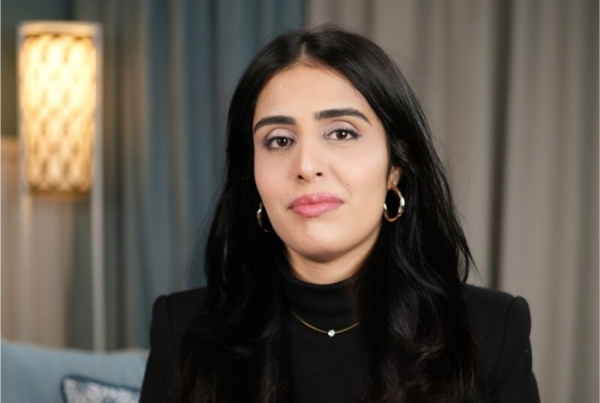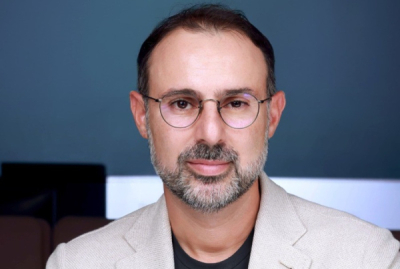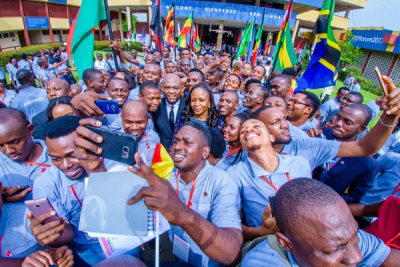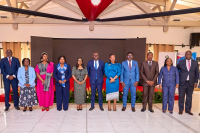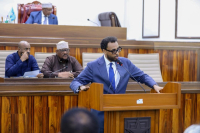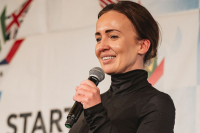- Morocco signed three agreements to strengthen training, territorial attractiveness, and high value-added digital offshoring projects.
- The offshoring sector employed about 148,500 people and generated 26.2 billion dirhams in export revenue by the end of 2024.
- Authorities aim to double sector performance by 2030, targeting 270,000 jobs and nearly 40 billion dirhams in exports.
Morocco signed three agreements on Tuesday, January 27, in Rabat to reinforce its digital offshoring ecosystem. Authorities concluded the agreements on the sidelines of a meeting focused on renewing the country’s national offshoring offer. The partnerships aim to support skills training, improve territorial attractiveness, and encourage the establishment of high value-added projects.
The agreements focus in particular on the rollout of a training incentive designed to align workforce skills with the needs of digital companies. They also provide for the development of Tech Valleys Offshoring through the creation of specialized economic hubs. These hubs will integrate technological infrastructure, shared services, and dedicated spaces to host both domestic and international investment.
The signing of these agreements comes as the global offshoring market undergoes rapid transformation driven by service digitalization, cloud computing, data expansion, and artificial intelligence. In this new environment, traditional destinations now compete with emerging hubs, especially across Africa.
Morocco seeks to consolidate its position by promoting a more structured offering that focuses increasingly on digital professions and high value-added services. Authorities see this repositioning as essential to maintaining competitiveness in a shifting global landscape.
Offshoring now ranks among the main contributors to Morocco’s service exports. By the end of 2024, the sector employed nearly 148,500 people and generated more than 26.2 billion dirhams ($2.8 billion) in export revenue.
At the same time, activities are gradually evolving. Traditional call centers are losing ground, while IT services, engineering, and specialized digital functions continue to expand. Moroccan authorities aim to double the sector’s performance by 2030, targeting 270,000 jobs and nearly 40 billion dirhams in exports.
Through these partnerships, the government aims to enhance the competitiveness of the “Made in Morocco” digital services offer on the global market. Authorities expect skills development, the structuring of specialized territorial hubs, and increased investor visibility to serve as the main growth levers.
Over time, these agreements could help attract new technology projects, support qualified employment, and strengthen Morocco’s position as a regional digital services platform serving both European and African markets.
This article was initially published in French by Samira Njoya
Adapted in English by Ange J.A de BERRY QUENUM
- Tunisian engineer Khouloud Abada founded RenYou in 2023 to structure long-term skin health monitoring.
- The application combines artificial intelligence with direct support from dermatologists and medical specialists.
- RenYou integrates lifestyle and nutrition factors into dermatological follow-up.
Khouloud Abada is a Tunisian entrepreneur and a trained engineer specializing in chemical process engineering. She founded and currently leads RenYou, an application designed to support people seeking better skin care through direct involvement of doctors and dermatology specialists.
Founded in 2023, RenYou introduces a new approach to telemedicine applied to skin health. The application aims to simplify the care pathway while ensuring monitoring under the supervision of healthcare professionals. The platform prioritizes personalized support tailored to each user’s needs rather than a standardized solution.
The platform relies on artificial intelligence to help users understand their skin condition, track changes over time, and receive structured guidance to treat dermatological issues. RenYou emphasizes accessibility by simplifying access to information and follow-up tools, allowing users to manage their skin care autonomously and continuously.
At the same time, the application adopts a holistic approach. RenYou does not treat the skin in isolation but incorporates factors such as diet and lifestyle that directly affect skin health. This approach reflects the idea that skin health often mirrors overall living habits. In line with this vision, RenYou also develops educational content aimed at informing and raising awareness beyond the application’s core use.
Khouloud Abada graduated from the Preparatory Institute for Engineering Studies in Tunis, where she earned a bachelor’s degree in applied sciences in 2016. She later obtained a master’s degree in energy from the University of Tunis in 2020, followed by a master’s degree in mechanical engineering in 2021 from the Frankfurt University of Applied Sciences in Germany.
She began her professional career in 2020 as a chemical process engineer at Medis, a company specializing in licensing generic medicines to pharmaceutical groups. From 2021 to 2023, she worked as a mechanical engineer at Audi UK within the British automotive group, before fully committing to her entrepreneurial project with RenYou.
Melchior Koba
- Moroccan entrepreneur Karim Beqqali founded Yakeey in 2022 to centralize real estate transactions on one digital platform.
- Yakeey integrates listings, advisors, notaries, banks, and insurers into a single transaction workflow.
- The platform targets market inefficiencies in buying, selling, and renting property across Morocco.
Karim Beqqali is a Moroccan serial entrepreneur and the founder and chief executive officer of Yakeey, a real estate platform launched in 2022. The company seeks to transform how individuals buy, sell, and rent property in Morocco.
Yakeey positions itself as a centralized platform that aggregates all services related to a real estate transaction. The platform offers verified listings for houses, apartments, villas, and offices for sale or rent, while integrating all key stakeholders involved in the process, including real estate advisors, notaries, banks, and insurance providers.
For buyers, the platform provides filtering tools based on property type, budget, city, or neighborhood. Users can request property visits and receive personalized follow-up from a dedicated advisor.
For sellers and landlords, Yakeey simplifies the transaction journey by offering free listing publication, online property presentation, and end-to-end support through closing. The platform assists with price setting, visit scheduling, and negotiation phases. Meanwhile, tenants access available listings and track the progress of their applications directly through the platform.
A key differentiating feature of Yakeey lies in the central role assigned to real estate advisors. Each user works with a single point of contact who supports the project from start to finish, including needs assessment, visit coordination, explanation of sale or rental terms, and preparation of administrative procedures.
Beyond Yakeey, Karim Beqqali also serves as founder and chief executive officer of Ynexis Group, a Moroccan investment group established in 2013. Earlier, in 2006, he founded the Moroccan subsidiary of U.S. real estate firm CBRE and led the operation until 2013, with responsibility for the North Africa region.
Beqqali graduated from ESSEC Business School in Paris after completing preparatory classes at École Sainte-Geneviève in Versailles. He also completed the High Potentials Leadership Program at Harvard Business School in Boston.
This article was initially published in French by Melchior Koba
Adapted in English by Ange J.A de BERRY QUENUM
The Tony Elumelu Foundation is now accepting applications for the latest round of its entrepreneurship programme. The initiative offers African entrepreneurs 12 weeks of online training, mentorship and $5,000 in seed funding. Successful applicants will also gain access to the foundation’s network and further financing opportunities. Applications close on March 1.
Qualcomm is now accepting applications for the latest round of its “Make in Africa” mentorship programme, aimed at tech startups across the continent. The equity-free initiative offers business coaching, engineering support for hardware and software development, and guidance on intellectual property protection. Applications close on Sunday, Feb. 15.
DRC Deputy Prime Minister and Economy Minister Daniel Mukoko Samba on Thursday unveiled Loba, a digital platform designed to inform consumers of their rights and handle complaints across regulated sectors. The chatbot is due to officially launch in late February 2026, covering areas such as banking, insurance, telecommunications and healthcare.
-
President Bola Ahmed Tinubu approved the acquisition of two new telecom satellites to replace Nigeria’s aging NigComSat-1R.
-
The government aims to support digital transformation, broadband expansion, and Nigeria’s $1 trillion economy target.
-
Authorities estimate the satellite replacement project at about $500 million and have opened it to multiple investors and suppliers.
Nigerian authorities are advancing plans to acquire two new telecommunications satellites to strengthen national digital infrastructure. President Bola Ahmed Tinubu approved the initiative, Communications, Innovation and Digital Economy Minister Bosun Tijani said, according to local media reports.
Tijani made the announcement on Wednesday, January 28, in Abuja during a press conference held on the occasion of World Data Privacy Day, which the Nigeria Data Protection Commission organized.
The two new satellites will replace NigComSat-1R, the only communications satellite Nigeria has operated since December 2011. Authorities launched NigComSat-1R to replace NigComSat-1, which China supported and launched on May 13, 2007, but lost shortly after deployment. Engineers designed NigComSat-1R for a 15-year lifespan, which placed its expected end of service in 2026. However, the government announced in September 2025 that it extended operations until 2028.
According to the minister, the satellite acquisition fully aligns with Nigeria’s digital transformation ambitions. He said the government is simultaneously deploying 90,000 kilometers of fiber-optic infrastructure, a project that has reached 60% completion. Digital technology plays a central role in President Tinubu’s strategy to build a $1 trillion economy. Satellites can expand access to information and communication technologies in a country where GSMA estimated that 120 million people lacked mobile internet access at the end of 2023, out of a population of 223.8 million.
As early as 2016, the Nigerian government expressed its intention to acquire two new telecom satellites and estimated the project cost at about $500 million. At the time, the executive branch said it was negotiating a loan with the Export-Import Bank of China, following the financing model used for the first satellite.
However, Nigerian Communications Satellite Limited Chief Executive Officer Jane Nkechi Egerton-Idehen said in a September 2025 interview with TechCabal that this financing structure no longer represents the sole option. She said the process is now open and that several suppliers and investors have submitted bids.
Beyond financing considerations, Egerton-Idehen emphasized that Nigeria also seeks to preserve its orbital slots, which represent the positions allocated to each country for satellite deployment. NigComSat-1R currently occupies one of the three orbital slots assigned to Nigeria by the International Telecommunication Union.
This article was initially published in French by Isaac K. Kassouwi
Adapted in English by Ange J.A BERRY QUENUM
- Cybastion and Gabon’s ANINF launched a free national digital and cybersecurity training program for 1,000 young Gabonese.
- The program offers three training levels, from basic digital literacy to certified specializations in networks and cybersecurity.
- The initiative builds on a 2025 Gabon–U.S. partnership to support digital infrastructure and youth employability.
U.S. technology company Cybastion and Gabon’s National Agency for Digital Infrastructures and Frequencies (ANINF) officially launched the free program on Tuesday, Jan. 27. The initiative targets young Gabonese seeking skills in digital technologies and cybersecurity.
Presenting the Africa DigiEmpower program, Antonia Akouré-Davain, managing director of Cybastion Gabon, said the country must develop local talent to sustain its digital transformation drive. She said the program aims to support the modernization of Gabon’s digital infrastructure while equipping young people and women with market-ready skills to improve their employability in both the public and private sectors.
The training framework includes three levels, ranging from entry-level courses to advanced technical specializations. The first level, open to participants without prior qualifications, focuses on basic computer skills and the use of digital tools. Advanced levels offer certification tracks in networking, cybersecurity and digital technologies to meet rising demand in the sector.
The program extends a partnership signed in 2025 between Cybastion and the Gabonese state to accelerate digital infrastructure development and provide the workforce with globally competitive digital skills. ANINF, a key project partner, will host the training through the ANINF Academy at its headquarters in the ANINF Tower and will support participants throughout the program. The agency said it may recruit top-performing trainees for national digital transformation projects.
Beyond Gabon, the initiative reflects a broader continental challenge. The World Bank estimates that more than 230 million jobs in sub-Saharan Africa will require digital skills by 2030, in a region where nearly 60% of the population is under 25. By investing in training, Gabon aims to strengthen its human capital, boost youth employment, support the digital economy and position itself within Africa’s growing role in the global digital economy.
This article was initially published in French by Samira Njoya
Adapted in English by Ange J.A de BERRY QUENUM
- Somalia’s parliament approved a cybersecurity law that creates a national governance framework and new response institutions.
- The law establishes a national incident response team, a nine-member cybersecurity committee and an emergency response center.
- The move follows recent cyberattacks, including a 2025 breach of the e-visa platform, and comes as Somalia ranks Tier 4 in the ITU’s Global Cybersecurity Index.
Somalia’s parliament approved the cybersecurity law on Monday, Jan. 26, strengthening the country’s regulatory framework as authorities intensify efforts to secure national cyberspace.
𝐒𝐨𝐦𝐚𝐥𝐢𝐚’𝐬 𝐏𝐚𝐫𝐥𝐢𝐚𝐦𝐞𝐧𝐭 𝐀𝐩𝐩𝐫𝐨𝐯𝐞𝐬 𝐭𝐡𝐞 𝐂𝐲𝐛𝐞𝐫𝐬𝐞𝐜𝐮𝐫𝐢𝐭𝐲 𝐋𝐚𝐰
— NCA Somalia (@SomaliaNCA) January 26, 2026
Mogadishu, Somalia – January 26, 2026 — The House of the People of the Federal Parliament of Somalia has today officially approved Somalia’s Cybersecurity Law, which aims to protect… pic.twitter.com/7XOgRDLp5A
The National Communications Authority (NCA) said the law establishes a national cybersecurity management framework. The text defines the responsibilities of the Ministry of Communications, assigns a technical role to the telecom regulator, sets obligations for operators of critical infrastructure and details mechanisms for prevention, reporting and response to cyber incidents.
The law also provides for the creation of the Somalia Computer Incident Response Team (SOM-CIRT), alongside a nine-member cybersecurity committee and an emergency intervention center tasked with coordinating rapid responses to cyber incidents.
“The cybersecurity law should play a key role in strengthening digital trust, supporting the growth of the digital economy and intensifying cooperation between public institutions, the private sector and international partners,” the telecom regulator said in a statement.
The approval follows earlier legislative steps. In August 2025, the Somali government approved a draft cybercrime bill. In March 2023, the Data Protection Act entered into force and led to the creation of the Data Protection Authority (ADP), which oversees enforcement of data protection rules.
Beyond domestic regulation, Somalia has pursued international cooperation to protect its cyberspace. The country signed a memorandum of understanding with Malaysia in August 2025, which authorities view as a global benchmark in cybersecurity. Earlier, in November 2024, Somalia strengthened cooperation with the United Nations Office on Drugs and Crime (UNODC) to bolster its capacity to combat online crime.
These initiatives come as cyber threats intensify. In his report State of Cybersecurity in Somalia 2024, Abdullahi Guled, a consultant to the Ministry of Communications, said Somalia recorded several cyber incidents in 2024, although authorities did not disclose many of them publicly. The incidents included ransomware attacks against public institutions and phishing attempts targeting the financial sector.
In November 2025, hackers breached the e-visa platform and compromised the personal data of several thousand people, highlighting vulnerabilities in government digital systems.
Somalia ranked in Tier 4 out of 5 in the International Telecommunication Union’s Global Cybersecurity Index 2024, which the ITU said “demonstrates a basic commitment to cybersecurity.” The country scored 37.38 out of 100 and still needs to strengthen technical, legal and capacity-building measures to improve resilience.
This article was initially published in French by Isaac K. Kassouwi
Adapted in English by Ange J.A de BERRY QUENUM
- South African accountant Bernice Houy founded Fintura in 2023 to centralize and automate accounting firm operations.
- The platform integrates task management, compliance tracking, client data and an AI assistant to cut administrative workload.
- Houy previously led Xena Accounting and now mentors startups while expanding Fintura’s footprint.
Bernice Houy is a seasoned South African accountant and a technology entrepreneur. She founded and now leads Fintura, an online platform designed to simplify the daily work of accountants, particularly those operating in South Africa.
Founded in 2023, Fintura helps accounting firms reduce the heavy administrative burden that often diverts professionals from their core advisory role. Instead of forcing firms to juggle multiple tools to manage daily tasks, deadlines, compliance requirements and client communication, the platform consolidates all functions into a single digital workspace.
Fintura offers a suite of features tailored to the operational needs of accounting professionals. The platform automates repetitive tasks such as deadline tracking and key data collection. It also centralizes client information, improves monitoring of legal and administrative obligations and brings documents, reminders and internal communications together within one application.
In addition, the platform integrates an intelligent virtual assistant named Hank. The assistant answers questions, sends deadline reminders, retrieves documents and suggests templates. Through these functions, Hank helps accountants save time and reduce the risk of oversight.
Before launching Fintura, Houy founded Xena Accounting in 2018. She led the accounting, business and tax advisory firm as chief executive until 2025. She now serves as a mentor at the Founder Institute, a global startup accelerator.
Houy holds a bachelor’s degree in financial accounting obtained in 2017 from the University of South Africa. She completed her academic training in 2023 with a postgraduate diploma in accounting from the Milpark School of Financial Services, a South African business school.
Houy began her professional career in 2014 as an account manager at Fenns Incorporated, an accounting firm. From 2020 to 2024, she served on the finance committee of Justice Desk Africa, a human rights organization. At the same time, she worked as chief financial officer at Solutions For Africa, an organization that develops capacity-building solutions for businesses, individuals and institutions across Africa and beyond.
This article was initially published in French by Melchior Koba
Adapted in English by Ange J.A de BERRY QUENUM
More...
- South African entrepreneur Nicolas van Zyl founded Naritive in 2021 to redesign digital advertising around social media behaviors.
- Naritive develops interactive formats such as Ad Stories and Ad Social to increase attention, engagement and message recall.
- Van Zyl combines a legal background with senior roles in media agencies and esports governance.
Nicolas van Zyl is a trained lawyer and a South African entrepreneur. He founded and now leads Naritive, an international company specializing in digital advertising.
Founded in 2021 under the name NXD, Naritive supports brands in designing advertising experiences that are more engaging, interactive and visible online. The company moves away from traditional advertising formats, which users often ignore, and instead develops creations inspired by social media usage. These formats aim to capture attention, drive interaction and strengthen message recall.
Naritive develops several advertising formats. The first, Ad Stories, mirrors the structure and visual language of popular social media stories and delivers them as interactive and immersive advertisements. Another format, Ad Social, converts content already published on social media into advertisements distributed across the wider web while preserving original interaction mechanisms.
In addition, the company offers The Naritive Platform, an advertising platform that centralizes the creation, management and deployment of these formats. The platform provides tools that convert visual or social content into interactive ads, integrate features such as polls, clickable areas or animations, and distribute campaigns across multiple digital environments.
Alongside his work at Naritive, Nicolas van Zyl serves as partner and non-executive director at Mettlestate, a leading esports and gaming company in South Africa.
He graduated from the University of Cape Town, where he earned a bachelor’s degree in English, history and philosophy in 2012, a bachelor’s degree in law in 2015 and a master’s degree in human rights law in 2017.
In 2017, he joined Mercurial Media, an advertising company, as an intern and later became digital campaign manager. In 2018, he joined Nettrade Programmatic, a media solutions agency, where he successively held roles as head of advertising operations and head of performance. In 2020, he continued his career at OMD Worldwide South Africa as head of digital accounts.
This article was initially published in French by Melchior Koba
Adapted in English by Ange J.A de BERRY QUENUM
Aya Data, a Ghanaian startup focused on data annotation and AI services, has raised $900,000 in seed funding to expand its AyaGrow and AyaSpeech products and hire new staff. Founded in 2021, the company trains workers for technical data jobs while developing tools for agricultural monitoring and speech recognition systems designed for African languages.
Enakl, a Moroccan startup founded in 2022, has raised $2.3 million in seed funding to speed up the deployment of its shared mobility services. Its technology helps corporate clients and public agencies build and manage flexible transport networks in real time. The company said the funds will support sales expansion, the launch of a new software product and pilot new shared-fleet models.
WhatsApp is testing a linked secondary account feature on Android that would let parents create child-friendly profiles with limited functionality. Messages could be restricted to approved contacts, while some parts of the app would remain inaccessible, though end-to-end encryption would still apply. The feature is still in development and has no announced release date, but it aims to bring parental controls directly into the platform.



